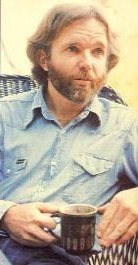 Next in our series of posts about our founder Doc Tom. Previous time capsules: 1980 and 1985.
Next in our series of posts about our founder Doc Tom. Previous time capsules: 1980 and 1985.
Come, ye economics buffs and algebra fans; get out your pencils and solve for x, n, and XX:
Whatever else the year 19XX is remembered for, it will — without a doubt — go down in history as a record year for medical expenses here in the United States. All indications are that before the calendar year is out, Americans will have spent $x (n% of the Gross National Product) on drugs, X-rays, surgery, physicians’ fees, laboratory tests, hospital overhead, health insurance, etc. That’s up from the [0.3 × x] ([0.7 × n%] of GNP) just 13 years ago.
Clearly, the medical establishment has become a threat to the average American’s budget (if not his health).
Ready? That was… 1978. Check the tiny numbers back then:
Whatever else 1978 is remembered for, it will—without a doubt—go down in history as a record year for medical expenses here in the United States. All indications are that before the calendar year is out, 216 million Americans will have spent $139 billion (8.6% of the Gross National Product) on drugs, X-rays, surgery, physicians’ fees, laboratory tests, hospital overhead, health insurance, etc. That’s up from the $39 billion (5.9% of GNP) medical care cost in 1965 . . . just 13 years ago.
Tom Ferguson was a medical student, and in the self-reliant era of the Whole Earth Catalog, he saw that patients could help heal healthcare by taking better care of themselves. In 1976 he’d started a magazine called Medical Self-Care. The text above appeared in Mother Earth News in May 1978, as the introduction to an 8,000 word interview with Tom.
The intro continues:
Clearly, the medical establishment has become a threat to the average American’s budget (if not his health).
Which is one reason why medical self-care—the idea that health care should, to some degree, be taken out of the hands of physicians and put back into the hands of consumers—has started to become so popular in this country over the past few years . . . and why a fourth-year Yale medical student by the name of Tom Ferguson decided—in the spring of 1976—to launch a magazine called (appropriately enough) Medical Self-Care.
To see the entire, original Doc Tom interview, click here. It’s quite a trip, as the hippies said: he dropped out of Reed College without a degree, joined VISTA (the domestic Peace Corps), entered medical school at 30 like Albert Schweitzer.
You’ll find all kinds of treasures, such as the story of how he asked first-graders what they’d like to hear, instead of gettin’ all didactic at them. And this, a very early indication of the patient responsibility aspect of participatory medicine:
After a while, I got to feeling—in treating some of these patients—like I was a mechanic working on cars that’d been wrecked by people who’d never learned how to drive. What was needed were not more mechanics . . . but a little drivers’ education.
And this:
…You have to decide what you mean by “health care”. What people get trained to do in medical school is diagnose and treat disease, and a lot of times we tend to call this “health care”. In fact, it’s illness care. …I think that one reason self-care is getting to be so popular now … is that consumers are starting to see professionally delivered illness care for what it is.
And, near the end, this:
A friend of mine … is an M.D. who no longer practices any illness care. He only practices wellness care, on a fee-for-service basis. If you go to see John when you’re sick, he’ll refer you to another physician for diagnosis and treatment! … John’s goal is strictly to evaluate and elevate his clients’—and he calls them clients, not patients—level of wellness.
Again, to see the entire original interview, click here. And serious history buffs can see all ten Medical Self-Care columns in Mother Earth here.






Thanks, Dave! If you can believe it, there is a video of Tom and those first graders – I think Joe & Terry Graedon have it. Wonderful stuff.